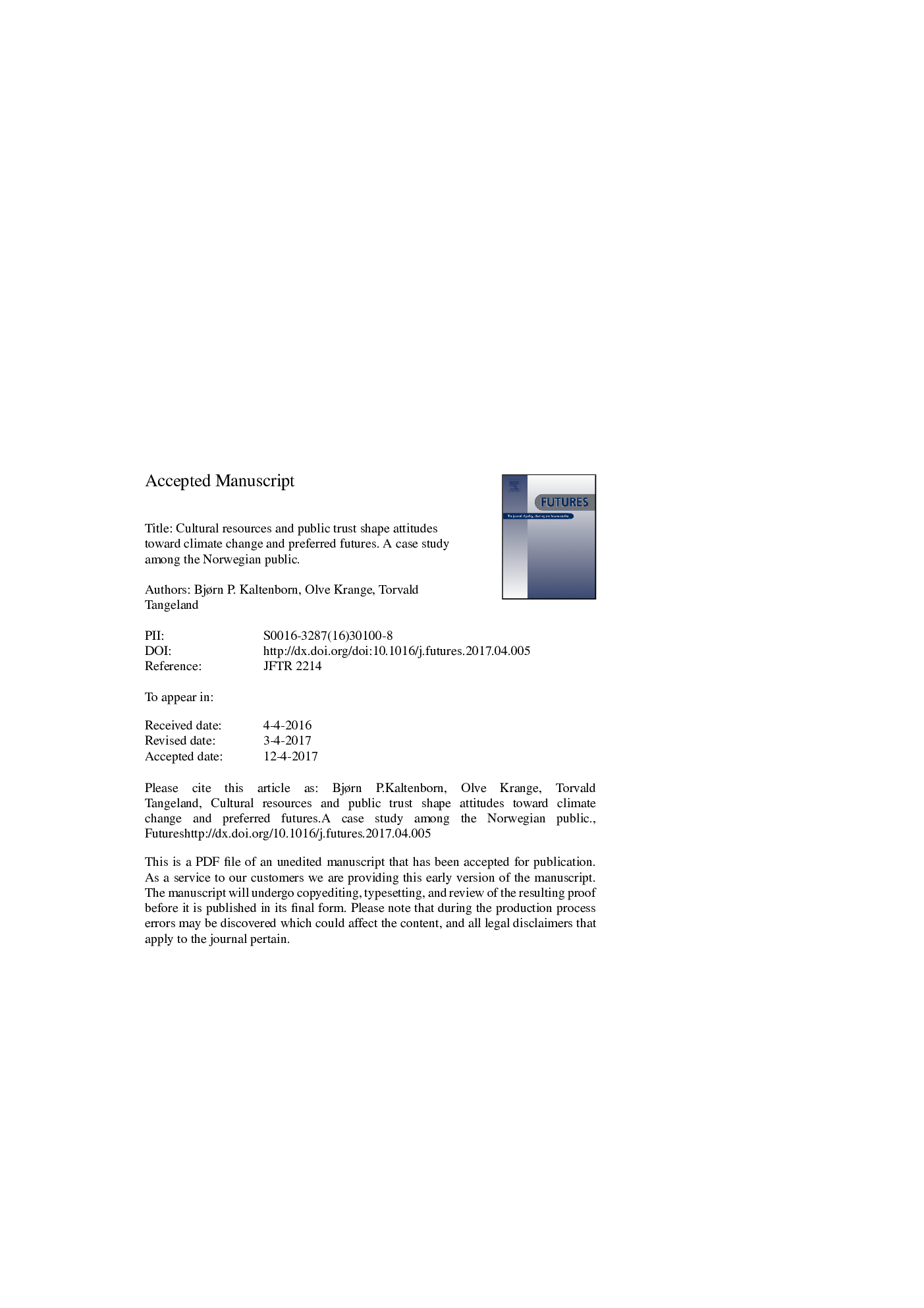| Article ID | Journal | Published Year | Pages | File Type |
|---|---|---|---|---|
| 5109091 | Futures | 2017 | 37 Pages |
Abstract
Since climate change mitigation likely will affect most sectors of society, adapting to climate change essentially requires the public to envision and adjust to alternative futures. There is a need for more studies on the social basis for climate change asking why people hold the attitudes they do, rather than the dominant tendency to ask how to change attitudes and behavior. Research in different fields show that fundamental life values and worldviews are shaped through life and heavily influenced by early life socialization and culture, which in turn can shape attitudes toward specific phenomena like climate change. We surveyed a representative sample of the Norwegian public and examined how cultural resources and trust in environmental governance institutions are related to attitudes toward climate change. High levels of trust are associated with a tendency to perceive climate change as human caused, and low levels of trust correspond with stronger beliefs that climate change are natural phenomena. High levels of cultural resources are found among climate change deniers as well as believers, indicating that groups with different political, professional and intellectual orientations, as well as life histories, may not trust climate change science. We argue that improved knowledge about the social basis for climate change is an imperative part of futures-oriented expertise.
Related Topics
Social Sciences and Humanities
Business, Management and Accounting
Business and International Management
Authors
Bjørn P. Kaltenborn, Olve Krange, Torvald Tangeland,
